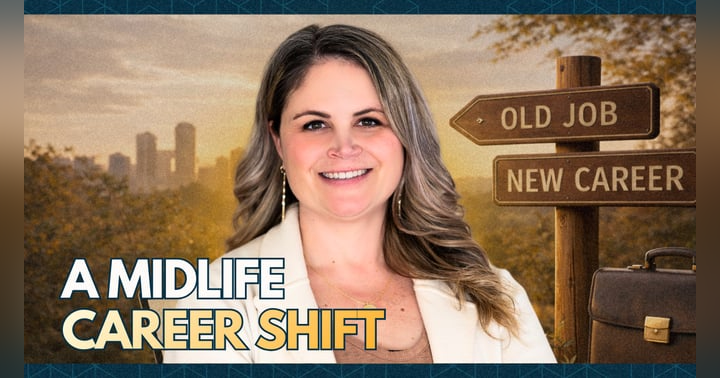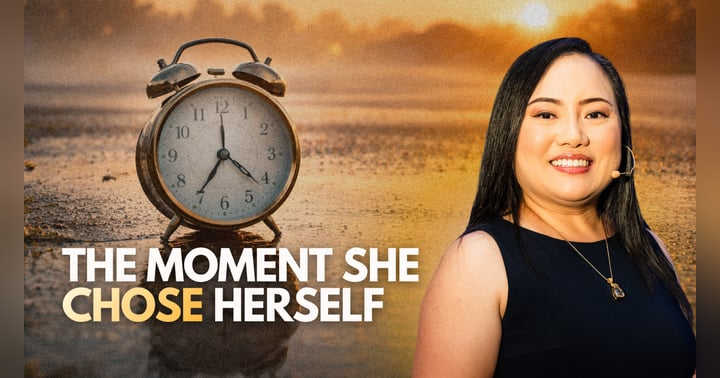Life After “Your Child Has Cancer” – What One Parent Did Next

When Laura DeKraker Lang-Ree’s three-year-old daughter whispered, “It hurts everywhere, Mama,” she had no idea those would be the words that shattered her world. But in that quiet moment, everything changed. What followed was a diagnosis — leukemia — and a years-long journey through treatment, trauma, and transformation. And somewhere along the way, Laura realized that if no one else was going to offer a guide, she was going to write one.
As the host of The Life Shift Podcast, I’ve heard many stories about the moment everything changes. Laura’s is one I won’t forget anytime soon.
The Diagnosis That Changes Everything
There’s no blueprint for how to parent a child through cancer. There are hospital protocols, medical teams, and treatment plans, but there’s no emotional map for how to survive it as a family. Laura and her husband were suddenly immersed in a world of chemotherapy, uncertainty, and fear, all while trying to keep things as normal as possible for their daughter.
According to the American Cancer Society, around 10,470 children under the age of 15 will be diagnosed with cancer in the U.S. in 2024. Yet even with these numbers, the emotional and logistical support for parents navigating pediatric cancer is shockingly limited.
Laura told me, “We had a great medical team. But nobody told us how to live while our child was fighting for her life.”
That gap between medical expertise and day-to-day survival is what Laura set out to fill.
Turning Pain Into Purpose
In the early days of her daughter’s treatment, Laura relied on instinct. And community. A stranger at the hospital approached her, saw the panic in her eyes, and said, “You look like you need help.” That woman became her lifeline, handing her a list of practical steps, support groups, and reminders that she wasn’t alone.
But Laura noticed something else, too — that many parents, years after their child’s treatment had ended, were still living in the trauma of it. Some were emotionally frozen in the moment of diagnosis. Others had never stopped functioning in crisis mode. And it made her wonder: What if we had tools to support not just the child, but the entire family? What if we had a guide?
That wondering led to action. Twenty years after her daughter’s diagnosis, Laura wrote The Cancer Parents Handbook: What Your Oncologist Doesn’t Have Time to Tell You. It’s the book she wishes someone had handed her on day one.
Caregivers Need Care Too
One thing Laura and I talked about a lot is how quickly caregivers lose themselves. We give everything — our time, our energy, our health — to care for someone else. But we rarely ask, “What do I need to keep going?”
Laura’s answer to that question became a central part of her book. She wrote chapters not just for the child in treatment, but for the parent trying to hold everything together. She talks about gratitude journaling, morning routines, and the quiet mental unraveling that can come after the adrenaline fades. Her story reminded me that we rarely give parents permission to break down. We just expect them to be strong.
But strength doesn’t mean not falling apart. Sometimes it means rebuilding from the pieces — with support, structure, and honesty.
Giving Other Families a Map
Now, Laura is sharing her experience widely. She collaborates with medical professionals, speaks at hospitals and conferences, and continues to show up in online spaces for families just starting this journey. She told me that many people outside the pediatric cancer world assume that once treatment ends, life goes back to normal. But that’s not always true.
Grief, trauma, and the weight of “what could have been” still hang in the air. And for many parents, the end of treatment is when the hardest emotional work begins.
I think that’s what struck me most about Laura’s story. It’s not just about surviving a crisis. It’s about creating something lasting from the lessons that came after it. Her story is a reminder that healing isn’t linear, and strength doesn’t always look like holding it together. Sometimes, it looks like writing the handbook that never existed — and handing it to the next terrified parent who needs it.
—
To hear more about Laura’s journey and what she’s building for families facing the unthinkable, you can listen to her episode of The Life Shift Podcast at www.thelifeshiftpodcast.com.














